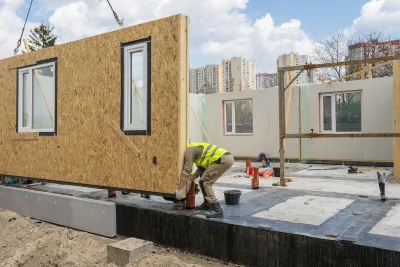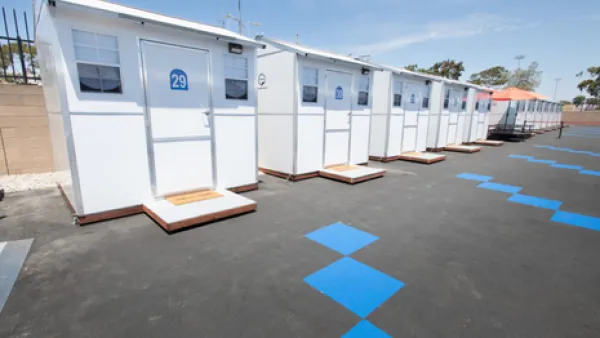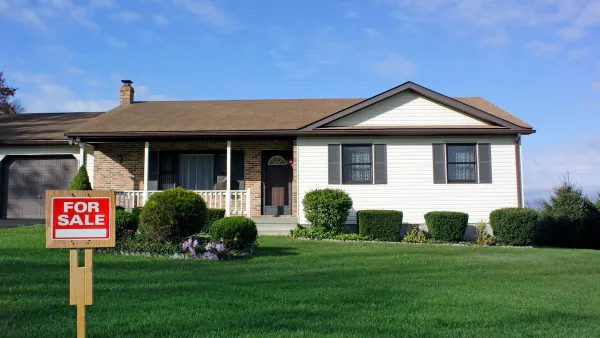A relatively minor change to the federal government’s regulations on modular construction could bring down the cost of building and deploying modular housing to more communities facing housing shortages.

An op-ed in The Architect’s Newspaper by Jordan Rogove and Wayne Norbeck argues that simplifying building and zoning codes for modular housing could help ease the housing crisis and provide more affordable housing units in a shorter amount of time than traditional construction. According to the authors, “Typically 15 to 20 percent less expensive per square foot than traditional site-built homes of similar quality, modular housing is less expensive because it is built in controlled factory settings with less waste and lower labor costs.”
The authors note that “there are inherent obstacles to purchasing and building modular homes, and this stems from archaic building regulations, many written more than 50 years ago.” In their experience, building codes vary too much from place to place, making it difficult and expensive to build modular housing. “A singular code for all modular building projects, similar to the model set by HUD, would have an enormous impact on the availability of homes in a country experiencing an unprecedented housing shortage.”
While the Department of Housing and Urban Development (HUD) has a Minimum Property Standard rule that supersedes local regulations in 36 states, the problem with HUD’s code, from the authors’ perspective, is that “HUD mandates that homes must be manufactured on a chassis, or trailer—a remnant of the trailer industry’s approach to building in the 1970s when this exception was codified.” Effectively, this stifles innovation and prevents the construction of several types of modular homes.
The authors support the proposed federal Renewing Opportunity in the American Dream (ROAD) to Housing Act, which would alter regulations to change the language about chassis construction and open up more opportunities to make modular homes more affordable for builders and homebuyers.
FULL STORY: Advocating for code change to increase access to modular/emergency housing

Analysis: Cybertruck Fatality Rate Far Exceeds That of Ford Pinto
The Tesla Cybertruck was recalled seven times last year.

National Parks Layoffs Will Cause Communities to Lose Billions
Thousands of essential park workers were laid off this week, just before the busy spring break season.

Retro-silient?: America’s First “Eco-burb,” The Woodlands Turns 50
A master-planned community north of Houston offers lessons on green infrastructure and resilient design, but falls short of its founder’s lofty affordability and walkability goals.

Test News Post 1
This is a summary

Analysis: Cybertruck Fatality Rate Far Exceeds That of Ford Pinto
The Tesla Cybertruck was recalled seven times last year.

Test News Headline 46
Test for the image on the front page.
Urban Design for Planners 1: Software Tools
This six-course series explores essential urban design concepts using open source software and equips planners with the tools they need to participate fully in the urban design process.
Planning for Universal Design
Learn the tools for implementing Universal Design in planning regulations.
EMC Planning Group, Inc.
Planetizen
Planetizen
Mpact (formerly Rail~Volution)
Great Falls Development Authority, Inc.
HUDs Office of Policy Development and Research
NYU Wagner Graduate School of Public Service




























